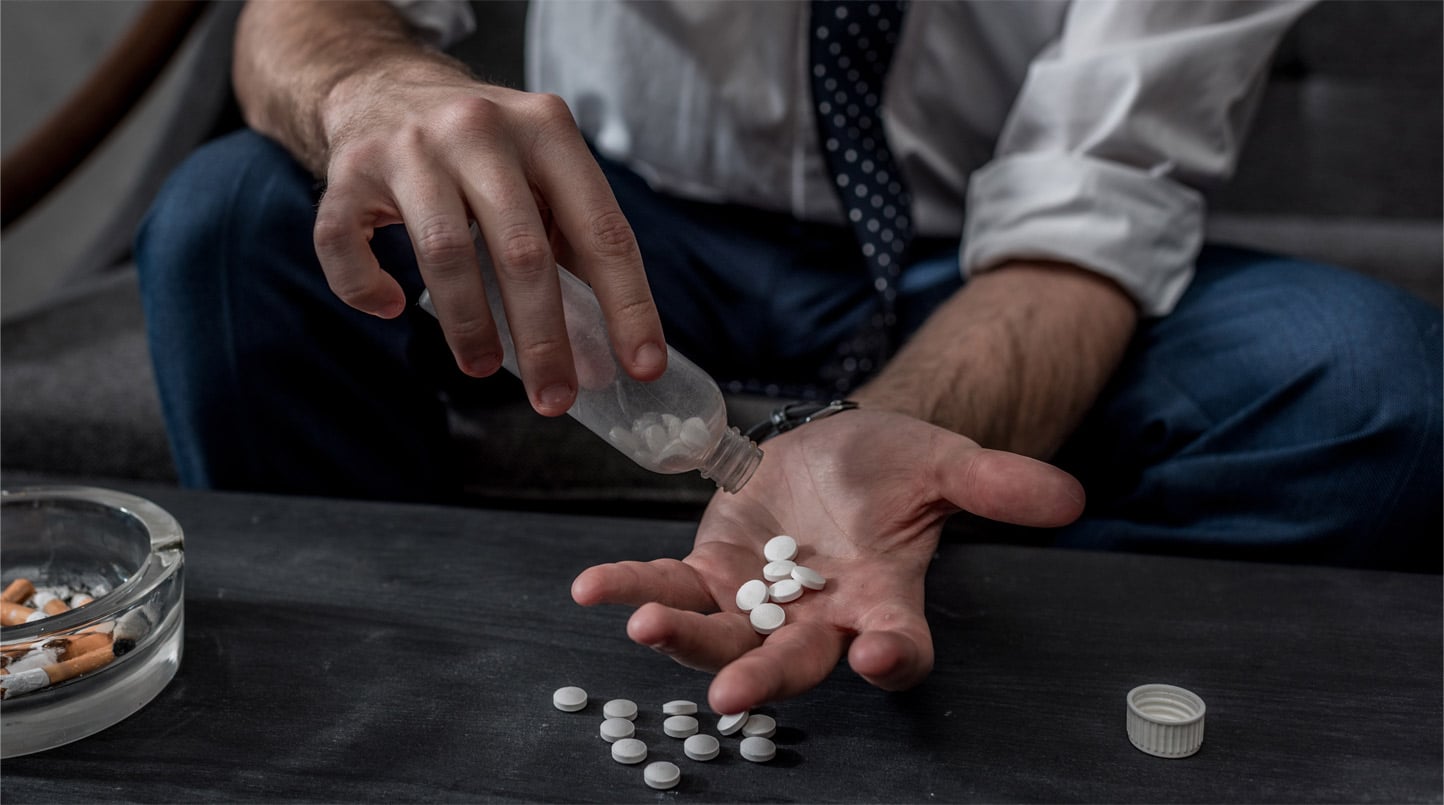Heroin is a highly addictive substance. It is synthesized from morphine which comes from the seeds of the opium plant. Opioids are commonly used as medical painkillers. But Heroin as an illicit street drug is often combined with other substances and sold at varying concentrations, making it impossible to determine a safe dosage.
People who use heroin become fixated on the dopamine rush that it provides, but as use continues, and addiction develops, the brain becomes unable to produce dopamine without the aid of the substance, forcing them to use it continuously in order to feel pleasure.
Like other commonly abused substances, heroin impairs the brain’s center for decision making which results in a compulsive urge to use or an addiction. As use continues, tolerance also builds up. In order to maintain the same high, heroin users must increase their dosage, putting them at greater risk of overdose.
If you or a loved one is struggling with heroin use, you may begin to experience several side effects. In this article, we will discuss what these are as well as the treatment options available for heroin addiction.
Physical Addiction Symptoms
The physical symptoms associated with heroin use and withdrawal are numerous. Symptoms of a heroin high can impair an individual’s ability to focus on daily tasks and live life comfortably. While some of these symptoms are experienced by the individual, others are noticeable to others. These include:
- Dry mouth
- Weight loss
- Nausea
- Heart palpitations
- Irregular appetite
- Flushed skin
- Headaches
- Breathing irregularities
- Tremors
- Lethargy
- Feelings of itchiness
- Runny nose
- Slurred speech
- Constipation
- Chest pain
- Poor hygiene
- Lacking coordination
- Bluing of the extremities (due to lack of oxygen in the body)
- Finding drug paraphernalia like needles, syringes, pipes, and charred spoons in their personal spaces
Changes to the Mind and Behavior
- Feelings of euphoria and intense pleasure while using, followed anxiousness and fatigue when the drug wears off
- Brain fog: Inability to focus, problem-solve or follow basic instructions
- Reclusive and/or secretive behavior
- Money and expensive items go missing
- The person acts hostile towards others
- Impulsive spending
- Making dangerous choices that endanger self and others
- Problems at work, school, and other social engagements arise
- Makes frequent requests to borrow money
What is Heroin Withdrawal Like?
With Heroin, minor withdrawal symptoms generally occur 6 hours after last taking the drug and major withdrawal systems occur after 2 days. Symptoms attributed to withdrawal are restlessness, insomnia, vomiting, bone aches, and diarrhea.
Heroin and Prescription Drug Misuse
Opiate-derived prescription painkillers, while effective at treating chronic pain, have highly addictive potential. Like other illicit drugs, tolerance forms and use steadily increases. When the person can no longer refill their prescription, they may turn to heroin as a cheaper more potent alternative.3
This is believed to play a large role in the rise of heroin use in the United States. According to an article from the National Institute on drug abuse, from 2002 to 2016 the number of people who could be classified by the DSM-V as being heroin-dependent had increased by 412,000, and today, heroin and opioid addiction continue to be a national health crisis.
Spotting and Preventing Potential Overdose from Heroin and Other Opiates.
According to the National Institute on Drug Abuse, close to 50,000 people died as a result of opioid overdoses.1The opioid crisis has been fueled by the improper use and prescribing of opium-based painkillers. Because tolerance builds quickly, it is common for those who abuse pharmaceuticals to move up to harder drugs like heroin or fentanyl.
By learning to recognize the signs of overdose, it may be possible to save a life. Here are some things to look out for:
Pre-Overdose State
- Pupils appear to shrink to a pin-like state
- The person moves slow and appears droopy
- The person may be “nodding out” or slipping in and out of consciousness
- Speech is slurred or incomprehensible
- The person still responds to loud noises or being shook
Overdose State
- Loss of consciousness
- Doesn’t respond to stimuli or answer to their name
- Can’t speak even though they are awake
- Heartbeat is abnormal (slowed, erratic, or not beating)
- The skin is pale and clammy
- Vomiting
- Obstructed breathing (choking or gurgling)3
What to do if You witness an Opioid Overdose
If you believe that you or someone else is experiencing a drug overdose, don’t hesitate; call (844) 570-1301 right away.
Finding Help for a Heroin Addiction
Both inpatient and outpatient treatment rehabilitation programs are available for people seeking help for drug detox treatment.
Inpatient programs
- Intensive treatment lasting 1-6 months
- The patient lives in the facility while receiving treatment
- Provide access to 24/7 medical care
- Offers medically assisted detox
- Less affordable than outpatient treatment
Outpatient Programs
- More flexible scheduling but less intensive than inpatient care
- The person stays at home and goes to treatment a few hours a week
- More affordable than inpatient treatment
- Treatment has no set length and is based on the patient’s needs
- Has some detox services such as medication distribution services
As we mentioned earlier, the effects of heroin withdrawal can be formidable
While both treatment options have their strengths and weaknesses, it is highly advised that those suffering from heroin addiction detox in a medical environment. That way they have access to 24/7 medical support staff as well as medication that can ease the detox process.
With help from a recovery center and a fair amount of determination, a person can successfully recover from heroin addiction and go on to lead a happier life.
All American Detox Center is a recovery program based in Woodland Hills, California that specializes in addiction treatment for drug and alcohol use disorders.
If you or a loved one is suffering from dependency on heroin or another substance, contact us now at (844) 570-1301 to discover a range of recovery resources available to you





